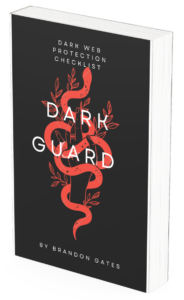A lot has been going on since the recent occurrence of the COVID-19 pandemic. People around the world are panicking amidst the devastating crisis.
What’s even worse, fake news about the pandemic has been showing up lately, and it’s been driving people insane for the past couple of weeks.
Fake news like “hoarding toilet papers can save you” alone is already a major cause of outrageous buying-sprees and hoarding in most countries, which is, by the way, not the best solution for this kind of crisis.
So, what do you need to do to avoid fake news on social media?
Learn to know where the information is coming from
The first thing that you should do to know whether the news is fake or not is to check its source. Sometimes, people overlook the source of the article that they’re reading, not knowing that they’re already falling for the fake news trap.
Always remember that the best sites that you can trust today should be connected or linked to the WHO.int – (World Health Organization).
You can also trust the known news programs on T.V and on social media who are actually citing the WHO in all of their COVID-19 related articles and news. These are the only sites that you should trust, nothing more, nothing less.
Don’t just read the headlines, read the full article!
Sometimes, people aren’t always hooked with fake news, but instead, they are hooked with wrong information because of misconception.
Most of the time, news programs and news-related pages are indeed showing misleading headlines or titles for their articles, just to fish for attention. This is probably one of the major causes of outrageous actions online, simply because people fall for misconception.
And oh, it’s also true that most of these news-related sites aren’t spreading fake-news at all, that is if you read the full article that they provided. The only problem is their misleading headlines, which you should be aware of.
So, how do you avoid this? It’s simple, don’t just read the headline, but read the full article instead.
If there comes a time where you’ll find a news article with a fishy title or headline, don’t just bite in, and most importantly, don’t share it immediately. What you need to do is to open up the article and read it thoroughly.
Additional things to avoid
There are times, where people are actually paid to spread fake news online. You’ll know when its indeed a work of someone who’s paid to spread fake-news because of the article’s funky or faulty message.
Sometimes, these articles are created by expert trolls, which is why most of their articles sound believable. But, as always, if the news that you are reading is too good to be true, avoid it and look for a better source.
Bottom Line
Avoid getting caught with these articles online by being socially responsible.
ake note, by not spreading these types of news on social media sites online, you’re also doing a good thing or the online community.
Not everything you read and see online is true, so always be aware of what you are reading.








